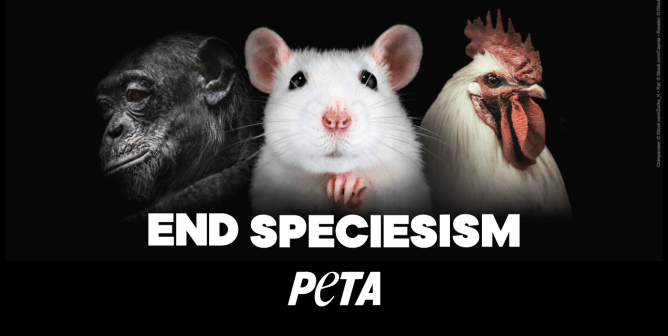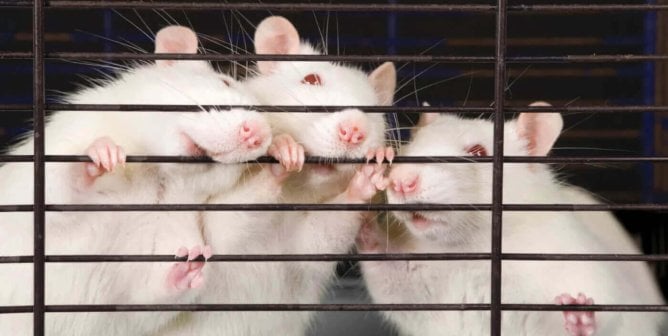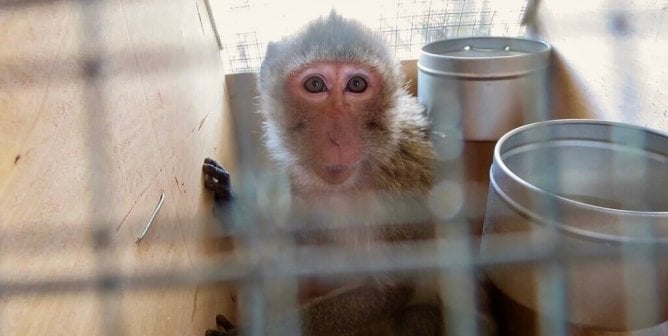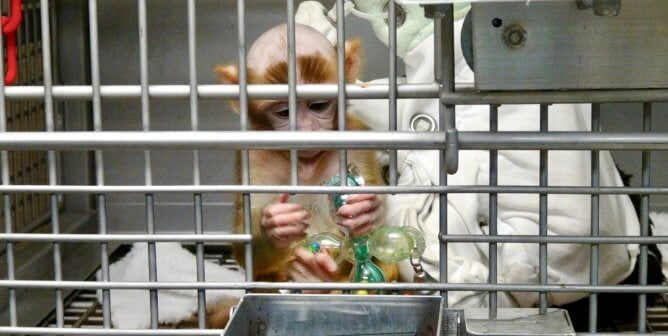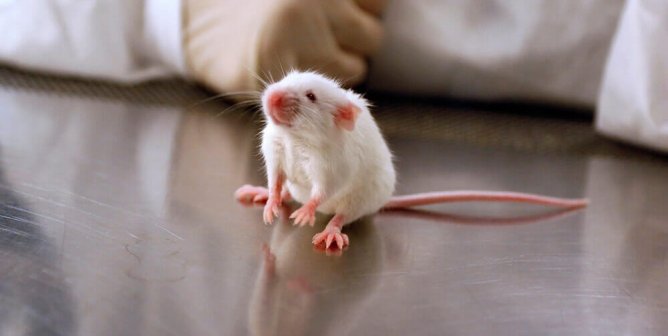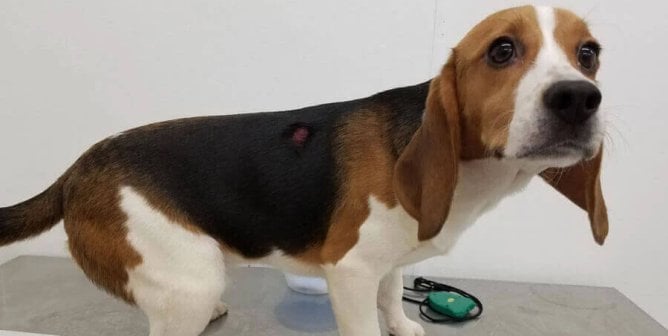Shareholder Campaigns
PETA’s shareholder resolutions have been a powerful means of influencing the management, boards, and investors of companies engaged in animal testing and of encouraging those businesses to develop and implement non-animal test methods. Importantly, they have also opened the door to discussions with companies’ upper management and top scientists. In response to PETA’s resolutions, a number of companies—such as Dow, DuPont, 3M, and other chemical, pharmaceutical, and medical device companies—have agreed to enter into regular, constructive dialogues with PETA scientists.
Shareholder Resolutions and Animal Testing
Over the years, PETA has obtained shares in companies by purchasing them or receiving them as donations from members and supporters. As partial owners of a publicly traded company, shareholders are entitled to bring resolutions to a vote during its annual meeting.
PETA’s first shareholder resolutions, in 1987, targeted cosmetics and household-product manufacturers that conducted animal tests. Since then, with the support of our members, we’ve filed shareholder resolutions covering many other animal-testing issues with dozens of companies.
Some actions taken by companies as a result of discussions with PETA include the following:
- Expanding their use of non-animal test methods
- Implementing large computational toxicology programs that spare the lives of tens of thousands of animals in government-mandated testing
- Working with PETA scientists to develop testing strategies that avoid the use of animals
- Investing in a non-animal method for testing inhalation toxicity, preventing large numbers of animals from being used
- Removing animal-derived products from their inventory and replacing them with similar products from non-animal sources
- Increasing collaboration with other companies to further the development and use of non-animal test methods
- Contributing data for use in projects to verify that non-animal methods can replace animal tests (This information is required before government regulators will accept non-animal methods.)
- Urging regulators to accept non-animal tests in place of customarily required animal tests
- Implementing systems for tracking their use of animal and non-animal methods as well as the success rate for regulatory acceptance of non-animal methods
- Working with in vitro test method developers to design non-animal tests specific to the companies’ needs
- Launching internal training programs to ensure that staff are aware of and familiar with existing non-animal methods
- Participating in webinars and workshops to inform others about animal-free testing approaches
- Inviting PETA scientists to speak to local toxicology chapters about animals testing
Find out how to support PETA’s shareholder resolution campaign.

